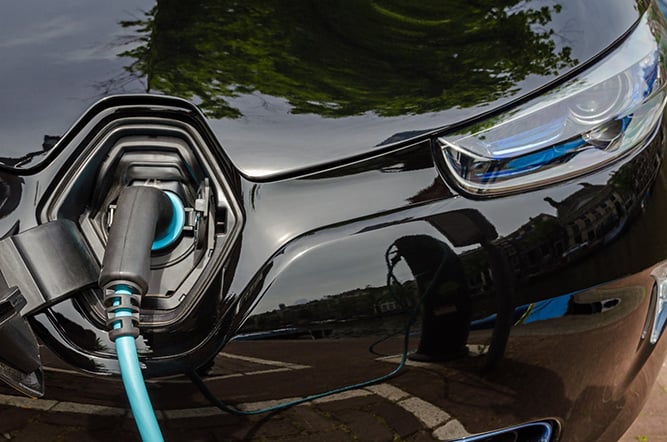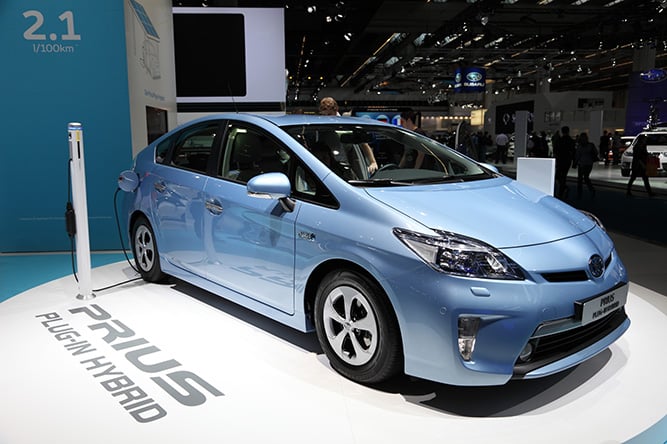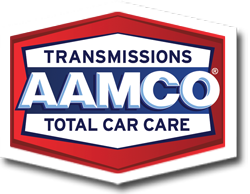Car Technology is Rapidly Changing
In a world where the temperatures and gas prices are steadily rising many companies are innovating different ways to power vehicles than traditional gas and diesel fuels. Both consumers and government agencies are putting increased demand on the production of alternative fuels as environmental concerns grow.
There are over a dozen alternative fuels being developed, or currently in production – although not all are available on the market for use in consumer cars yet. It can be hard to keep up with all the new options coming into the world of cars so we’ve put together this handy guide of some of the more popular alternative fuels on the market today.
Related: Computers in Your Car
Related: What Happens If You Put The Wrong Fuel In Your Car

Electricity
Electric cars don’t require any gasoline to run. The popularity of this type of energy to power cars has been growing since it has been introduced thanks to vehicles like the Nissan Leaf and the range of Tesla cars. Electric cars get their power from plugging into an electric power source, and the number of public charging stations is on the rise.
Related: Electric Cars Getting Multi-Speed Transmissions
Hybrid Power
Hybrid vehicles are often confused with electric vehicles. However, a hybrid vehicle uses more than one form of energy to make the car more – typically this means it will have a traditional engine as well as electric motors and batteries. Using electricity to even partially power a car shows significant improvements in the number of emissions put out. There are two main types of hybrids seen in consumer cars on the market today: gas-electric hybrids and plug-in hybrids.
Gas-Electric Hybrids
Gas-electric hybrids were the first to reach the U.S. market, with the most well known being the Prius. They use a battery to provide power at low speeds and does not need to be plugged in as the traditional engine recharges the battery.
Plug-In Hybrids
Plug-in hybrids are similar in working to their gas-electric sibling but have much larger batteries that can be recharged. This allows the car to use electricity alone some of the time to move. They are often much more expensive and there are currently only four models available in the U.S. Prius also provides a plug-model.

Biodiesel
Biodiesel is a renewable fuel that is made from animal fats, vegetable oils or recycled cooking grease for use in diesel engines. Biodiesel is a cleaner-burning and safer alternative to traditional petroleum diesel. Biodiesel can be used in any engine that uses diesel fuel and studies even show that it outperforms regular diesel fuel on efficiency and emissions.
Pure biodiesel can have some performance issues in colder weather and may require some modifications to your engine before use so be sure to consult a trusted mechanic, your engine warranty and your owner’s manual before use. Some biodiesel may actually be a blend of traditional diesel fuel and biodiesel.
Availability of Biodiesel & Biodiesel Cars
There are now hundreds of biodiesel fueling locations in America and most existing gas station infrastructure is compatible with supplying biodiesel and biodiesel blends. Since biodiesel and conventional diesel vehicles are one and the same, almost any diesel vehicles are capable of running on biodiesel. Biodiesel, which is most often used as a blend with petroleum diesel fuel, can be used in many diesel vehicles without any engine modification.
Related: Considerations for Buying a Diesel Car
Renewable Natural Gas
Renewable natural gas comes from organic materials, such as garbage from landfills or animal waste. This material is then compressed and turned into a liquid that can be used for fuel. Right now this fuel source is mainly used in heavy-duty trucks as it is able to power them efficiently over long distances.
Hydrogen Fuel Cells
Hydrogen fuel cells are one of the newest players on the alternative fuel scene. Hydrogen fuel cells work by combining hydrogen and oxygen in a chemical process to generate electricity that is stored inside of a fuel cell. The electricity that is created in the fuel cell then powers an electric motor in your car. With this type of power, your car is generating its own electricity rather than relying on battery power alone to power itself. The only byproduct of this process is water vapor.
Availability of Hydrogen Fuel & Hydrogen Fuel Cell Cars
There is an increasing number of hydrogen fueling locations being rolled out across the country for hydrogen fuel cell vehicles to support the expansion of hydrogen infrastructure. Currently, there have been a few hydrogen fuel cell cars in production for consumer markets since 2007: Honda FCX Clarity, Mercedes-Benz F-Cell, Hyundai Tucson FCEV, Toyota Mirai, Riversimple Rasa, Honda Clarity Fuel Cell and the Hyundai Nexo.
Related: Hydrogen Cars vs Electric Cars
AAMCO Colorado – Your Trusted Name in Car Care Today & Beyond
AAMCO has been the trusted name in transmission repair and total car care for over 50 years – we are here for all your car repair needs from classic cars to your cars of the future. We offer free seasonal check-ups and Vehicle Courtesy Check.
Is it time for your next tune-up, oil change, brake service or major repair? It’s easy to schedule online with your local AAMCO Colorado location today.
